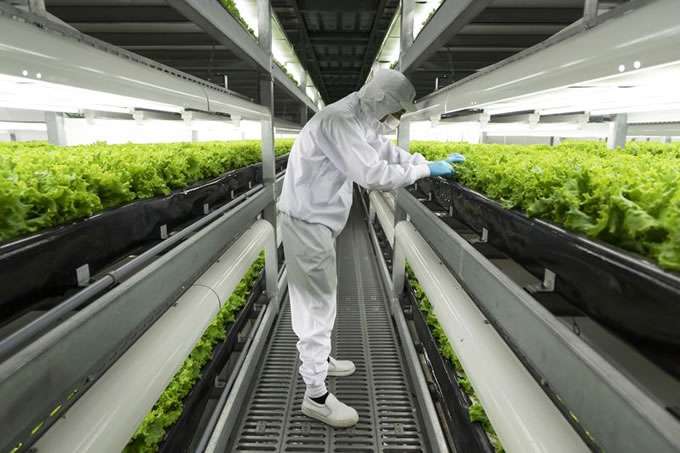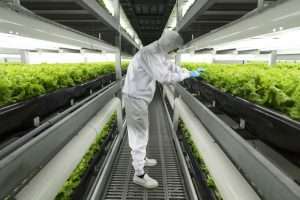Japan’s food tech innovations aim to boost global food security

Japan is developing high-tech farming techniques and training women farmers to help address global food shortages, reported Africanews via Euronews on 21 November.
Japan is turning to high-tech agricultural solutions to address pressing global food security challenges, using automation, soil-free farming, and inclusion initiatives to increase yields while reducing labour costs.
At Techno Farm Keihanna in Kyoto Prefecture, an automated facility produces 30,000 heads of lettuce daily. Factory manager Matsumura Tatsuya highlighted the importance of iterative learning. He said, “The trial and error process we’ve accumulated since 2018 has led to stable production now, which is a significant strength.” Matsumura’s remarks underline how Japan’s long-term investment in food technology has paid off in consistent, large-scale production.

Terao Tasuku from Tokyu Land Corporation said that such automated solutions may soon become more accessible globally. He explained that automation could soon reach developing countries as costs drop, and Japan’s innovations may provide a scalable model for countries struggling to feed growing populations.
In Kanagawa Prefecture, Mebiol Inc. has developed the IMEC film, a new technology that replaces traditional soil and blocks harmful microbes. Chief Executive Officer Yoshioka Hiroshi said, “Our film technology can improve crop quality… and contribute to improving women’s status.” By preventing soil borne diseases and reducing water and fertiliser use, IMEC enables more efficient, sustainable farming practices.
The technology is being applied at QUON farm in Hyogo Prefecture, where Fujimoto Shizuka uses the IMEC film to grow sweeter tomatoes. Beyond increasing crop quality, Fujimoto trains women farmers, demonstrating that innovation and empowerment can advance in tandem. This dual focus reflects Japan’s broader commitment to socially inclusive agriculture.
Experts say these approaches offer lessons for climate resilient agriculture. By minimising reliance on traditional soil based methods, reducing labour requirements, and integrating women into farming, Japan is building a blueprint for sustainable food production that other nations could replicate.
As the world faces rising food insecurity due to climate change, population growth, and resource limitations, Japan’s blend of automation, soil-free farming, and social inclusion highlights the potential of technology to reshape agriculture. The country’s investment in food tech shows that combining efficiency, innovation, and social equity may be key to ensuring global food security in the decades ahead.
Japan’s ongoing experiments demonstrate that advanced food technology is not just a domestic solution but a potential global model. With cost reductions and wider adoption, these innovations could play a crucial role in feeding millions worldwide while promoting environmental sustainability and social progress.
Africanews via Euronews, Maghrebi.org
Want to chase the pulse of North Africa?
Subscribe to receive our FREE weekly PDF magazine













